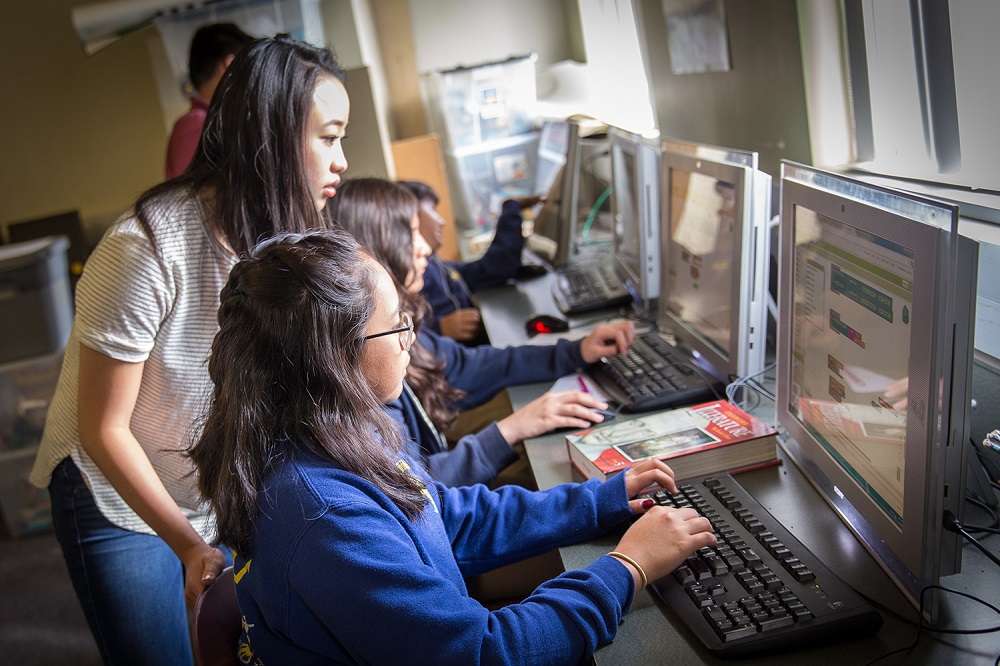In an era where digital technology and traditional education systems coexist, students face a critical choice: online or offline study methods. This article aims to explore the intricacies of both, shedding light on student preferences and the impact of each method on the learning experience.
Understanding Online Study Methods & Offline Study Methods
Online learning has emerged as a beacon of flexibility and accessibility in education. It encompasses a range of digital platforms, from virtual classrooms to interactive courses, offering learners the freedom to study from anywhere at any time. The advantages of online learning are manifold, including the ability to access a wide variety of resources and the convenience of learning at one’s own pace. However, it also presents challenges such as the need for strong self-discipline and the potential for reduced social interaction.
Offline study, the traditional classroom-based approach, has been the foundation of education for centuries. It offers a structured learning environment, face-to-face interaction with teachers and peers, and a sense of community and collaboration. While offline learning provides a more hands-on and interactive experience, it lacks the flexibility and accessibility that many modern students seek.
Comparative Analysis & Student Perspectives
Comparing online and offline study methods reveals significant differences. Online learning offers unparalleled flexibility and a vast array of resources, making it ideal for self-motivated learners and those with busy schedules. Offline learning, on the other hand, provides a more structured and interactive environment, beneficial for those who thrive in a traditional classroom setting.
Student preferences vary widely, influenced by individual learning styles, lifestyle needs, and the nature of the subject matter. Some students prefer the interactive and structured environment of offline learning, while others favor the flexibility and convenience of online methods.
Impact on Learning Outcomes
The mode of learning can significantly impact academic performance and skill acquisition. Online learning often requires a higher degree of self-motivation, which can lead to better time management and self-discipline skills. Conversely, offline learning can enhance communication skills and provide a more immersive learning experience.
Technology plays a pivotal role in both online and offline learning. In online education, technology provides innovative platforms and tools that enhance the learning experience. In offline settings, technology is increasingly being integrated to support and enrich traditional teaching methods.
The Future of Education The future of education is likely to see a blend of online and offline methods. Blended learning models, which combine the strengths of both approaches, are becoming increasingly popular, offering a more balanced and versatile educational experience.
Expert Opinions
Educators and psychologists highlight the importance of choosing the right study method based on individual needs and learning styles. They emphasize the need for balance, suggesting that a combination of online and offline methods can provide a comprehensive learning experience.
Global Perspective
The preference for online or offline study methods varies globally, influenced by cultural factors, technological access, and educational systems. In some regions, online learning is rapidly gaining popularity due to its accessibility, while in others, traditional classroom learning remains the norm.
Challenges in Adapting to New Methods
Adapting to new study methods, whether online or offline, presents challenges. Students may face technological barriers when shifting to online learning or struggle with the lack of structure in offline settings. Overcoming these challenges requires support and resources tailored to each learning method.
Support and resources are crucial for success in both online and offline learning. Online learners benefit from digital resources like tutoring and forums, while offline learners have access to physical resources like libraries and hands-on materials.
Conclusion The choice between online and offline study methods depends on various factors, including personal preferences, learning objectives, and resource availability. As education continues to evolve, it’s essential for students to find the method that best aligns with their needs and goals.
FAQs
- What are the key benefits of online learning?
- How does offline learning enhance the student experience?
- Can online learning methods improve academic performance?
- What challenges do students face in traditional classroom settings?
- How is technology shaping the future of education?

